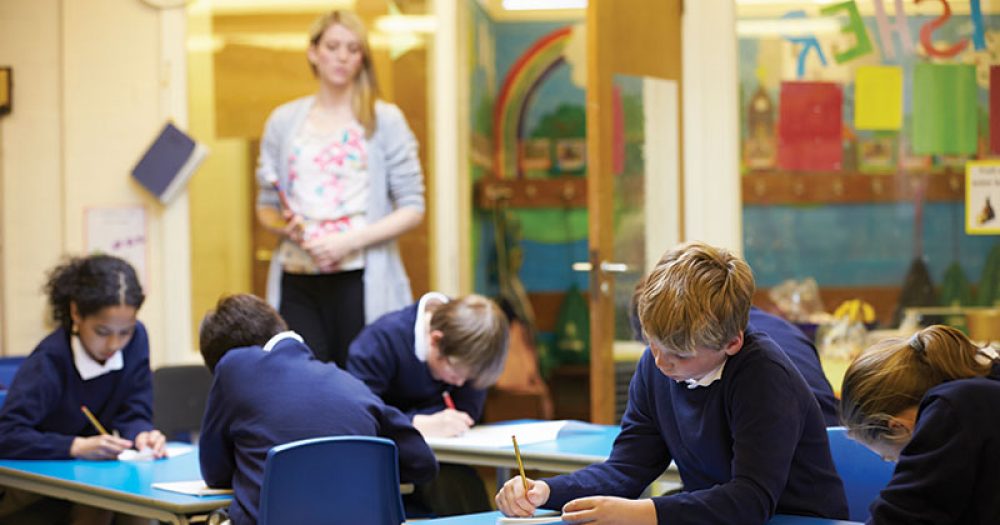The government has simplified questions in this year’s primary SATs after reports that last year’s tests left pupils in tears.
Schools Week has learnt that the Standards and Testing Agency has made the questions early on in this year’s tests for 10 and 11-year-olds slightly easier.
The agency has also assessed the structure of the test paper, and how questions are sequenced to make sure “children are not discouraged”.
Teachers said pupils were “completely demoralised” last year, particularly after the reading test.
The Department for Education said it was “well accepted” that last year’s controversial tests were hard, the first on the new tougher national curriculum.
However, it said that pupils would still be expected to reach the same standards – which suggests exams will be marked equally rigorously.
Just half of year 6 pupils met the new expected standard in key stage 2 SATs last year, compared with 80 per cent in 2015. But the government said the figures were not comparable because of the national curriculum changes.
It’s a huge advantage for children when they open their test paper and can do the questions at the start
Mary Bousted, general secretary of the Association of Teachers and Lecturers, welcomed the change in the difficulty of questions.
“It’s a huge advantage for children when they open their test paper and can do the questions at the start – it promotes endeavour and boosts confidence.”
The former education secretary Nicky Morgan said last year the government had raised the bar to a more “rigorous system” and that she “knew” it was “asking more”.
She said the 2016 results were a “good start” that had “vindicated [the DfE’s] decision to raise standards and will help those who need extra help get the support they need to lay the foundations for a bright future”.
However, Bousted said the reasons for tests “written so they were so undoable” should be questioned.
And while this year’s change was positive, schools must keep their eye on the bigger picture of ensuring the primary assessment consultation announced by the education secretary Justine Greening last week got things right.
Proposals include scrapping key stage 1 SATs for a new baseline test at reception. The consultation on the plans also asks for views on moving to a “best fit” model for teacher assessments of writing at key stage 2, as opposed to the current “secure fit” model.
The consultation follows a chaotic year for primary assessment. As well as reports of increased stress among pupils, there were protests and boycotts from parents, and pleas from school leaders for an end to the system.
The government also had to scrap the controversial spelling, punctuation and grammar tests after they were leaked online.
Greening said last week the government had reformed the primary school system to “make sure children can master the basics of literacy and numeracy so they get the knowledge and skills they need to succeed in later life.
“Now we want to build on that by developing a stable assessment system that helps children to learn, while freeing up teachers to do what they do best – supporting children to fulfil their potential.”
Read our one-page guide to the primary SATS changes here








I don’t know about pupils being in tears you should see the teachers – and I mean secondary as well as primary!
We are judged on the progress they make from this fiasco!
I do question the notion/implication of these being an ‘easier ride’. Stepping the questions so they start with the ‘easiest’ [hardly apocalyptic good sense] would simply – in English SATs – make for an ‘easier’ ride to nowhere as the questions themselves have not, presumably, changed. The GPS, for example, represent the most irrelevant testing of Writing competence, questioning through a sequence of discrete and often meaningless bits of apparent ‘knowledge’. I could elaborate [!], but if the questioning isn’t altered, there is no ‘easy’ attribution to what really matters when it comes to assessment. Indeed, the DfE continue to flaunt the soundbite of ‘rigour’ and ‘standards’, where these tests, in English, have little to do with the actual teaching and learning of Writing.